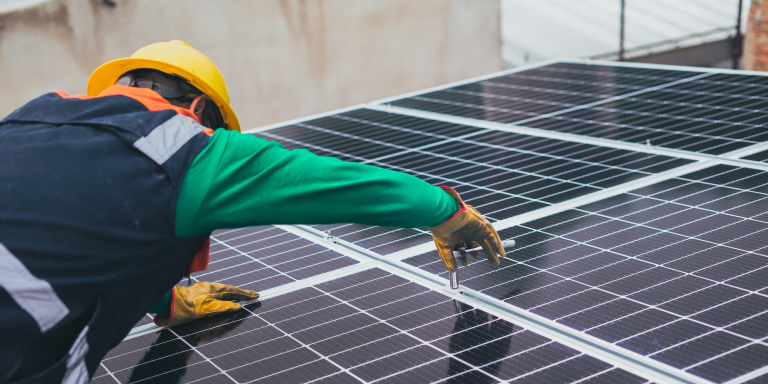
In France, public buildings are responsible for 20% of greenhouse gas emissions. To help local authorities implement an effective energy renovation policy, the Banque des Territoires will set up an AI tool: PRIORENO, which will make it possible to measure which buildings should be renovated first. The agreement defining the deployment of the service and the roles of the Banque des Territoires, the State, ENEDIS and GRDF was signed on February 16 during the announcement of the launch of Prioréno, which will be available very soon.
Banque des Territoires is a structure of Caisse des Dépôts created on May 30, 2018 with the objective of modernizing territories, fighting against inequalities and acting concretely in the service of the general interest. It provides its expertise in consulting and financing to local authorities and on the other hand, manages the mandates of the Programme d’Investissements d’Avenir and the Grand plan d’Investissement on behalf of the State.
The “France relance” plan, presented on September 3, 2020 by Jean Castex, devotes 100 billion euros to economic recovery, including 30 billion for the ecology component. One of the measures of the latter concerns the thermal renovation of public buildings of the state and communities. It is within this framework that the Banque des Territoires has launched the Climate Plan with Bpifrance in order to accelerate the ecological and energy transition of the territories and thus contribute to the economic recovery and green growth.
The burden of public buildings for local authorities
The various French governments have initiated and pursued a policy of decentralization over the past 35 years. Currently, local authorities are responsible for the maintenance of approximately 280 million m² of public buildings, most of which require energy renovation. Schools, nurseries, libraries, swimming pools, etc. account for 76% of a municipality’s energy consumption. This is the second largest expense item for local authorities after personnel costs, representing 3 to 6% of total operating costs.
An obligation of energy renovation
The energy transition is regulated to obtain by 2050 a 75% reduction in greenhouse gas emissions and halve energy consumption, including by the ELAN law and the “Eco Energy Tertiary” adopted to support and clarify the ELAN law. Thus, buildings in the tertiary sector will have to, compared to 2010, reduce their consumption by:
-40% in 2030,
-50% in 2040,
-60% by 2050.
The OPERAT platform
To enable local authorities to achieve these objectives, the Banque des Territoires created and implemented the “Observatory of Energy Performance, Renovation and Actions in the Tertiary Sector (OPERAT)”. This platform was supposed to collect data from local authorities last September, but in the context of the pandemic, this collection has been postponed to next September. It will provide an annual assessment of consumption adjusted for climatic variations. Its role is not limited to collecting data, as it also provides support in the process of improving the energy performance of buildings.
Prioréno, accelerating partnerships for energy renovation
Before local authorities commit to the energy transition of their assets, it is essential to determine which buildings should be renovated as a priority. To help them in this process and facilitate their decision making, the Banque des Territoires has set up an AI tool: Prioréno, an AI and data analysis service that aims to accelerate the energy renovation of these buildings to encourage energy sobriety and face the climate emergency.
Prioréno’s algorithms, developed by the Banque des Territoires, cross-reference and analyze the mass of energy consumption data provided by Enedis (electricity) and GRDF (gas) for most of the 500,000 public buildings in France. The agreement signed between the partners defines the role of each of them for this 18-month collaboration:
- The Banque des Territoires makes Prioréno available for free on its platform;
- Enedis and GRDF provide global energy consumption data and work on the design of future innovations for Prioréno
- The French government will ensure the articulation of Prioréno with other existing digital systems on complementary subjects and will support it with local authorities.
Olivier Sichel, director of Banque des Territoires states:
“Prioréno is a strong and innovative partnership with the State, Enedis and GRDF to accelerate the renovation of the public building stock, which we support from start to finish: from data analysis to engineering, from participatory financing to the long-term loans we make available to local authorities. It is also a demonstration that the Banque des Territoires platform plays a central role, at the heart of our ecosystem, to facilitate the implementation of public policies through the exploitation of data, today for local authorities, and why not tomorrow for the HLM sector for example.”
Prioréno is already being tested by some sixty local authorities who approve of its use.
Translated from Prioréno, l’Intelligence Artificielle au service de la rénovation énergétique des bâtiments publics









